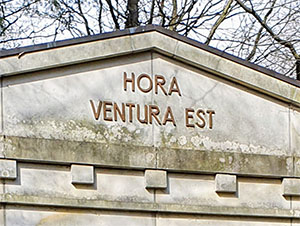In A Grammar of the Latin Language, Karl Gottlob Zumpt says,
But by the combination of the participle future active with the tenses
of esse a really new conjugation is formed denoting an intention to
do something. This intention may arise either from the person's own
will , or from outward circumstances, so that, e. g., scripturus sum
may either mean “I have a mind to write, or I am to write," or "I have
to write.”
One of the more useful explanations concerning this that I found is from Johann Philipp Krebs' Guide for Writing Latin:
A future action can be represented, either prophetically, as one still
uncertain, whether it be considered as still continuing, or already
completed, e. g. I will write or be writing to you (scribam); when I
shall have written to you, (scripsero), you will understand
(cognosces) everything definitely; or it can be so represented, as
also to signify that preparations have been made to perform it, and
give it a real existence. For this the Latin uses the participle in
urus, combined with the verb sum, because this participle denotes one who is destined to something by fate, is to be or do some thing,
is willing and inclined to do it.
In many cases, the distinction may be subtle and difficult to translate. However, it's good to keep in mind that, with the future periphrastic, the tense is indicated by the auxillary verb and therefore the emphasis lies with the time indicated by that tense (rather than the future relative to it) and the conditions conducive to whatever is to take place afterward.
For example, in "Hora ventura est", the expression draws one's attention to some present condition which insures that the hour will in fact come. Although many grammars speak of intention, the condition in question may often be something impersonal. In this case, fate or destiny may be what is intended, as in "The hour is bound to come."
This idea was expressed well by Charles Fries, in his article "The Expression of the Future":
The suggestion, then, which I should offer as the means of accounting
for the facts which we find concerning the expression of the future is
this. The grounds upon which the future is usually predicted are
desire, hope, intention, resolve, determination, compulsion,
necessity, or possibility. Any locutions which express any of these
ideas related to the future may be taken up and developed as future
tense signs.
